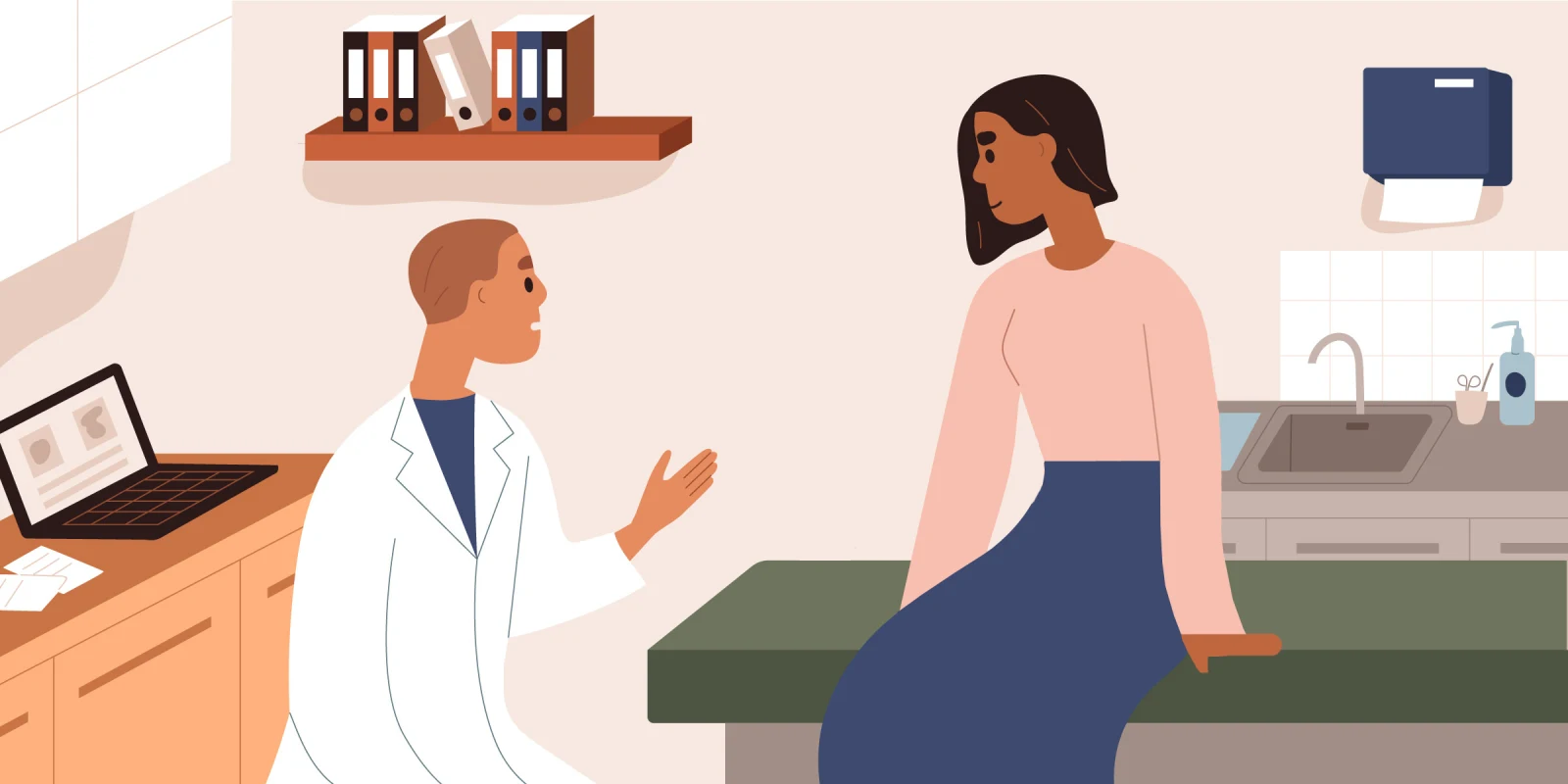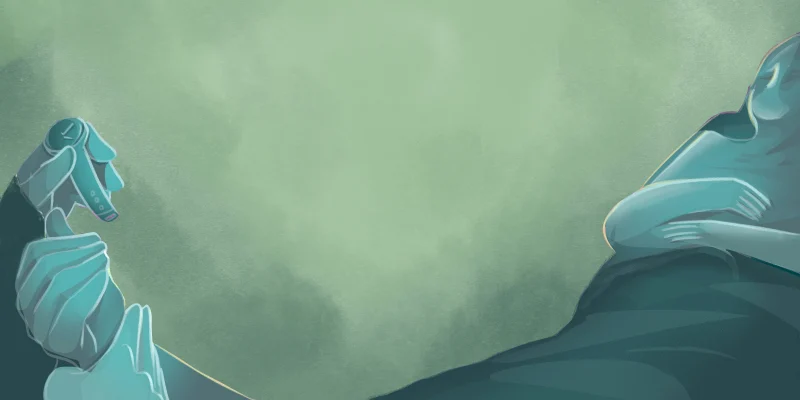“Ms. F has a history of complex regional pain syndrome now here with a few days of facial droop and numbness.” I stood meekly looking at my scribbles as I began to present my very first patient for my very first clinical rotation. “She also had a dental procedure many years ago that exacerbated her CRPS and thinks that her current symptoms could possibly be linked to that.”
My residents started smiling and exchanging glances with each other.
I began speaking faster so I could get to the end. “She thinks she has Bell’s palsy, and I would agree.” I let out a sigh and sat down.
They applauded me for taking on such a complex patient but ultimately encouraged me to tactfully direct my spiel to the patient’s main presenting concern and to deprioritize impertinent details. As I understood, certain items were just inconsequential.
Of course, how could anyone argue with that?
Although unconfident in my medical knowledge base as a newly minted clerkship student, I felt ready to delve deep into patients’ stories to gather a thorough history, and I aspired to know everything possible about them to weave everything together into a concise clinical picture. If patients were unable to recount their history for whatever reason, I told them not to fret, though I feared I would underwhelm my supervising residents. In such instances, I no longer feel as useful, when the objective components begin to dominate medical decision-making.
Conversely, an even larger predicament arises when patients do provide a complete HPI, but do so while meandering into many tangents. For busy clinicians, encounters with these patients may be just as problematic because they can involve an overload of information and jeopardize clinic flow.
During my time on rotations, I have observed a recurring theme in these kinds of encounters in which patients draw connections between the past and the present moment, attempting to make sense of one of the most confusing and frustrating times of their lives.
As an analogy, when a clinician discovers an additional unexpected finding on labs or imaging that may either lead them astray or fortuitously reveal a life-threatening lesion, we label it as an “incidental finding” and can discuss with the patient the implications. Yet when we discover such a finding within a patient’s history of present illness — namely, an experience from the distant past — I think of it as what may seem to be an “inconsequential finding,” but in reality, it is so much more than that.
My patient’s dental procedure from decades ago may have indeed been inconsequential to my team and unnecessary to include in my presentation — in the sense that it was not immediately relevant to her chief concern, did not readily factor into the assessment and plan, or otherwise impact our management.
But such statements abound routinely in the exam room, and she is far from alone. A few weeks later, I spoke with a patient who believed his migraines could be tied to several head injuries from childhood. On my hematology/oncology rotation, my patient worked in the defense industry as a nuclear tester for more than 50 years and wondered if that time contributed to his diagnosis of multiple myeloma. On ob/gyn, my patient sobbed while recounting past traumatic life events in relation to her chronic pelvic pain.
I have noticed that when the etiology of our patients’ conditions is unknown, they can reach deep into their memories for an answer, especially when we are unable to provide them with one. In this light, it becomes entirely understandable why patients may uncharitably ask themselves when, where, and how they went wrong. Our minds long to rationalize the irrational processes by which diseases seem to afflict us on a whim. Coping with a disease whose prognosis is uncertain is distressing enough, but coping with the uncertainty of the cause behind a disease is a heavy mental load to bear.
In addition to the uncertainty of causation, there is the related latency of causation. Ideas about latency and incubation may come from common knowledge of noxious agents. A few days can elapse between initial inoculation with SARS-CoV-2 and the development of COVID-19 symptoms, for example, while several weeks to months may elapse between a bout of COVID-19 and long COVID-19. For the clinician, there is something just so defeating about a latency period. The knowledge of an inciting event but inability to provide tangible post-exposure prophylaxis or otherwise retroactively intervene is a sobering realization about our limits.
It is easy to reflexively reassure patients of the improbability that a one-off event precipitated the onset of their condition, but if that is all we do, we falsely render their narrative inconsequential. Our patients’ thought patterns often reflect underlying stress or trauma to which we must be sensitive. Listen first, and reassure later.
Regardless of the soundness of their reported illness course, an opportunity arises to thank them for their vulnerability, to validate their thoughts and feelings, and to explore more deeply their motivation for drawing a connection that may seem illusory to us but powerful to them. Each time I engage patients in this way — and remain agnostic about if event X could be related to illness Y — I build a level of rapport that I may not have otherwise achieved had I just reassured from the outset.
As my acumen and experience continue to grow, so do my skills in building a differential diagnosis and delivering a concise patient presentation; I no longer mention impertinent info. Yet in the exam room, humility and curiosity hold steadfast, even when my patient fixates on an unlikely nidus. Though I have opportunities to steer the encounter away from the medically inconsequential findings, sometimes I simply must be emotionally present and listen to the intimately consequential findings of my patients’ full life, essence, and being.
What have you learned about the process of taking a patient's medical history? Share your experiences in the comment section.
Rishab Chawla is a third-year student at the Medical College of Georgia, class of 2024, and hopes to pursue child and adolescent psychiatry. His views are his own and do not represent those of his institution or organizational affiliations.
All names and identifying information have been modified to protect patient privacy.
Image by GoodStudio / Shutterstock







